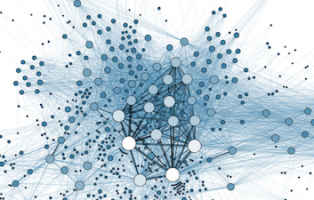Toward a Mechanistic Theory of Cultural Evolution
Research Question
I will work on the establishment of a new theoretical framework to understand cultural change – a framework that is not based on the analogy with genetic evolution but on the internal and external mechanisms underlying the emergence and spread of cultural innovations.
Project Description
Understanding cultural change – that is changes in language, customs, attitudes, beliefs, social norms, knowledge, technology, or skills – is a major challenge in the humanities and the social sciences. Various researchers have pointed out that cultural change is in many respects similar to genetic evolution. The argument is that, like genes, cultural traits exhibit variation, that this variation is transmitted between individuals, and that the variants differ in their efficiency to spread in a population. In other words, cultural traits show heritable variation in transmission efficiency, the prerequisite for evolution by natural selection. Based on this fundamental insight, the vivid research field of “cultural evolution” has emerged, which adopts concepts, methods and ideas from the theory of genetic evolution and applies them to cultural processes, such as the spread of language or technology. Some researchers even suggest that an evolutionary approach may provide a synthetic framework for unifying the social sciences, just as genetic evolution is a unifying principle underlying all life sciences. Although such ideas may sound appealing, one must realize that cultural evolution theory is much less well established than its biological counterpart. In particular, there is no generally accepted view of the nature of “cultural traits,” the laws governing their transmission, and the meaning and dynamics of “cultural selection.” I am convinced that the cultural evolution framework needs a new theoretical foundation, which is not based on the analogy between genes and “cultural traits” but on the mechanisms underlying the emergence and spread of cultural innovations. During my DLF project, I will work on the establishment of such a framework, hopefully profiting from intense discussions with social scientists, anthropologists, historians, psychologists, and other experts that have detailed knowledge of the processes underlying cultural change.
Selected Publications
M. Wolf, G.S. van Doorn, O. Leimar & F.J. Weissing (2007): Life-history trade-offs favour the evolution of animal personalities. Nature 447, 581-584.
M. Wolf, G.S. van Doorn & F.J. Weissing (2008): Evolutionary emergence of responsive and unresponsive personalities. Proc. Natl. Acad. Sci. USA 105, 15825-15830.
L. Molleman, I.R. Pen & F.J. Weissing (2013): Effects of conformism on the cultural evolution of social behaviour. PLoS One 8, e68153.
A.E. Quiñones, G.S. van Doorn, I. Pen, F.J. Weissing* & M. Taborsky (2016): Negotiation and appeasement can be more effective drivers of sociality than kin selection. Phil. Trans. R. Soc. B 371:20150089

